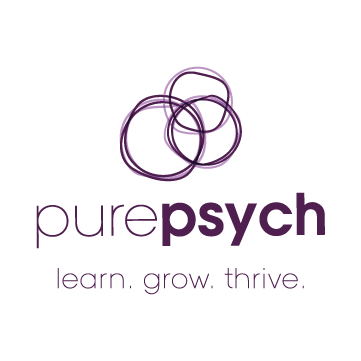WHAT IS EMDR THERAPY?
Eye Movement Desensitization and Reprocessing (EMDR) therapy is an extensively researched, effective psychotherapeutic technique proven to help people recover from trauma (whether complex or severe), other distressing or adverse life experiences, and other symptoms associated with PTSD, anxiety, depression, and panic disorder.
EMDR therapy is distinct from other psychotherapy treatments because it does not require talking in detail about the distressing issue(s) or completing homework between sessions. EMDR therapy, rather than focusing on changing the emotions, thoughts, or behaviors resulting from the distressing issue, allows the brain to resume its natural healing process. EMDR therapy is designed to resolve unprocessed traumatic memories in the brain. For many clients, EMDR therapy can be completed in fewer sessions than other psychotherapies.
Our brains have a natural way of recovering from traumatic memories and events. This process involves communication between the amygdala (the alarm signal for stressful events), the hippocampus (which assists with learning, including memories about safety and danger), and the prefrontal cortex (which analyzes and controls behavior and emotion). While many times traumatic experiences can be managed and resolved spontaneously, there are many times when they are not be processed without assistance. Stress responses are part of our natural fight, flight, or freeze instincts. When distress from a disturbing event remains, the upsetting images, thoughts, and emotions may create feelings that are overwhelming, of being back in that “moment,” or of being “frozen in time.” EMDR therapy helps the brain process these memories, and allows normal healing to resume. The experience is still remembered, but the fight, flight, or freeze response from the original event is resolved.
EMDR therapy is used with children and adults of all ages. Therapists use EMDR therapy to address practically any and all obstacles interfering with healthy psychological functioning. Examples include:
- Anxiety, panic attacks, phobias
- Chronic Illness and medical issues
- Depression and bipolar disorders
- Dissociative disorders
- Eating disorders
- Grief and loss
- Pain
- Performance anxiety
- Personality disorders
- PTSD and other trauma and stress-related issues
- Sexual assault
- Sleep disturbance
- Substance abuse and addiction
- Violence and abuse

You can outdistance that which is running after you, but you cannot outdistance that which is running inside you.
RUNNING ON AUTOMATIC? IT’S TIME TO ENTER THE UNCONSIOUS MIND.
EMDR therapy targets the unprocessed memories that contain the negative emotions, sensations, and beliefs. By activating the brain’s information processing system, the old memories can then be “digested.” Meaning what is useful is learned, what’s useless is discarded, and the memory is now stored in a way that is no longer damaging. The key difference is the way the memories are stored in the brain. If they are unprocessed, they can cause us to overreact or act in a way that hurts us or those around us. If they are “processed,” we are able to react in ways that serve our loved ones and ourselves well. EMDR therapy allows for new insights, connections, and change to occur.
CONTACT US TODAY TO TALK
purepsych professionals are specialized in EMDR therapy and were trained in EMDR by certified trainers and facilitators of the EMDR Institute, Inc. purepsych professionals are excited and enthusiastic about bringing one of the most effective therapeutic treatments to clients of the practice, new and existing! We would love to learn about you and your aspirations for personal growth and emotional wellbeing. Call 973-486-6248 or email drbryan@purepsych.com for a free consultation.
